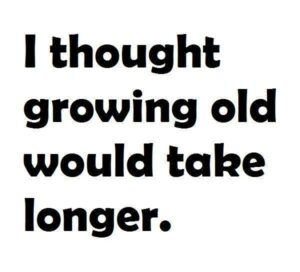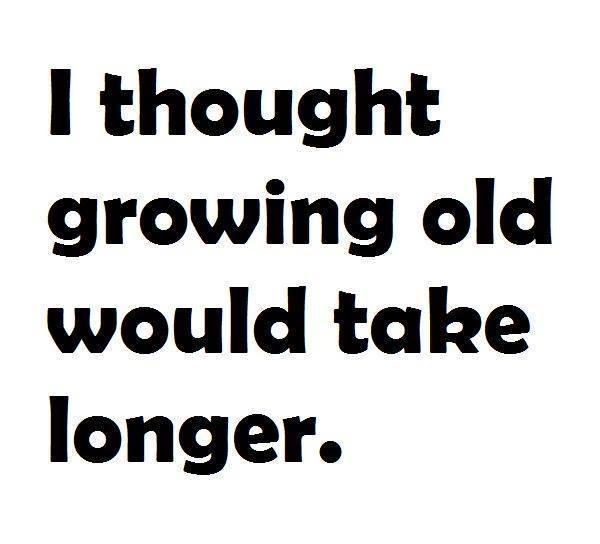
I suppose whenever I pass another birthday (83 this month), my thoughts return to thoughts of loving life. The good news, according to statistics, is that we’re living longer. The bad news is that our bodies frequently outlast our minds. Dementia is on the increase. To gain time by living longer and healthier, we must look after our brain as well as our body.
Physical exercise keeps the blood circulating throughout the brain where we need it most. It also helps to build new brain cells and improves learning and memory. So keep up a physically active lifestyle.
Lifelong learning, and the constant mental stimulation that it provides, will offset some of the cognitive decline we experience with aging. Avoiding stress where possible, and being able to cope effectively with it when it does occur, will prevent brain cells from being killed. Minimize the hassles in your life.
Social activities of any kind, where you are interacting with others, force you to practice cognitive activities as you carry on conversations.
Diet can also help. For example, older people, who get omega-3 fatty acids by eating fish such as salmon and sardines, or take DHA and EPA supplements, are believed to be able to slow cognitive decline as well.
An active lifestyle, both physically and mentally, is good for your overall health, including the health of your brain. And the most effective time management strategy I know is to live longer and healthier.
Age has its benefits besides senior discounts.
Older people are not always portrayed favorably in movies or sitcoms or among the younger crowd. In one study reported in the April, 2010 issue of Scientific American Mind, 65 percent of psychology students agreed that “older people are lonely and isolated.” And 64 percent of medical students agreed that major depression is more prevalent among the elderly,
Research doesn’t back up these opinions. In fact, older adults are actually happier than younger people, at least in the research reported to date. And population-based surveys reveal that rates of depression are highest in those between 25 and 45. The happiest group overall is men aged 65 and older. In one study of 28,000 Americans, a third of the 88-year-olds reported being “very happy” and the happiest individuals surveyed were the oldest.
Older people are more likely to recall positive than negative information, so that should also help. And cognitive abilities do not fade dramatically with age. We do experience some memory loss and forgetfulness; but serious illness of the brain aside, intelligence and verbal abilities are not much different than they were decades earlier.
So being over the hill, doesn’t mean you’re not able to climb more hills.
Purpose beats profit hands down.
It’s important to have goals at any age. But it’s also important to have the right goals. According to Daniel Pink in his book, Drive, it’s our nature to seek purpose. Monetary goals don’t necessarily satisfy. And as people grow older, they seem to have less concern about profit
He refers to a study of University of Rochester grads who were asked about their life goals, and then were followed up early in their careers. Some had “profit” goals such as to become wealthy or famous, and others had “purpose” goals, such as to help others improve their lives or to learn and grow.
Those with purpose goals, who felt they were being attained, reported higher levels of satisfaction and well-being than when in college, and lower levels of anxiety and depression. However those with profit goals reported levels of satisfaction and self-esteem that were no higher than when in college. They had reached their goals; but it didn’t make them any happier.
So attainment of profit or materialistic goals could have little if any impact on well-being.
But it does impact the pocket book. Of course I see nothing wrong with having both profit goals and purpose goals at any age. But being is more important than having, and purpose is more important than profit.
Simplification can help
There’s a book called Your Money or Your Life by Joe Dominguez and Vicki Robin that describes a Fulfillment Curve. This curve plots money or possessions or “stuff” along the x-axis, or horizontal axis, and fulfillment or happiness along the y-axis, the vertical axis. The more money you have to spend, the greater the degree of fulfillment and happiness – up to a point. After fulfillment goes through the survival stage, comforts stage and luxuries stage, it levels off. Then it starts to decrease.
Once you have achieved what the authors refer to as enough, acquiring more simply makes you unhappier. It’s interesting to note that Daniel Pink also mentions in his book, A Whole New Mind, that while living standards have risen steadily decade after decade, personal, family and life satisfaction haven’t budged.
Material things consume a lot of our time. People spend their precious non-renewable resource, time, in order to acquire more money and possessions, only to discover that the possessions do little to further their enjoyment of life. In fact, possessions consume even more of this non-renewable resource. Not only does it take time to earn enough money to buy this stuff, it takes time to shop for it, learn how to operate it, maintain it in good working condition, repair it, upgrade it, insure it and use it.
If we have to rent public storage, we have to sign a contract, pay rent, buy a lock, take trips back and forth to check on it or add to it, and so on. We are afraid of losing it, breaking it or having it stolen. We frequently have to make payments on it, acquire more space to accommodate it, and worry about keeping the neighborhood kids or the family dog away from it. There also comes a time when we have to figure out how to get rid of it.
From the viewpoint of cost, stress and time management, you should simplify your life as much as possible. Simplifying your personal life involves freeing up more time and energy to pursue your personal goals and working on activities that you really enjoy. Getting rid of the possessions that threaten to possess you is a good place to start.


Recent Comments